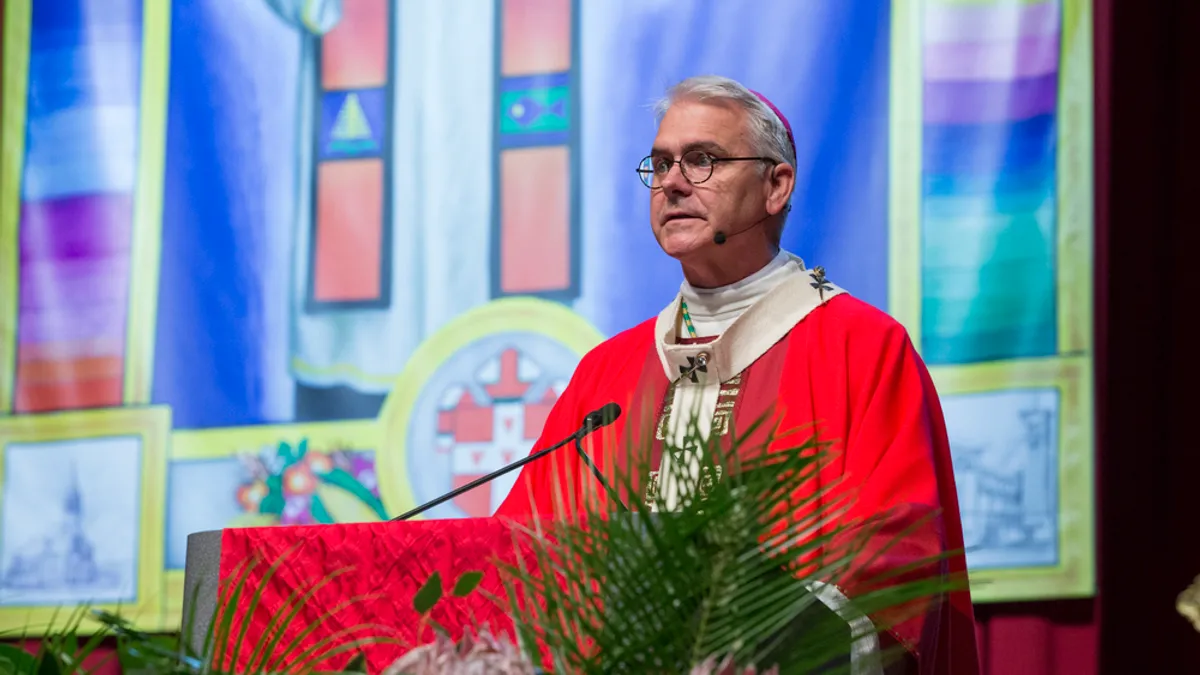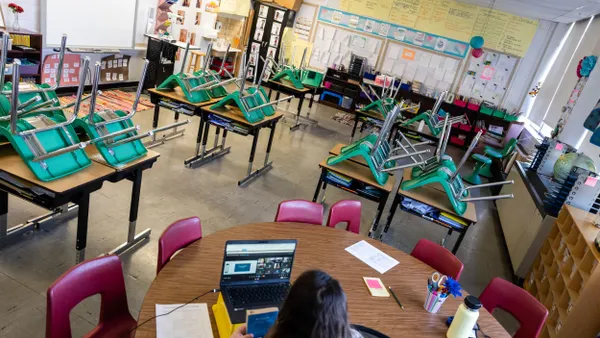Dive Brief:
- Public school parents and education advocates filed a lawsuit Monday challenging the nation's first religious public charter school. Approved in June by the Oklahoma Statewide Virtual Charter School Board, the school is set to open in fall 2024.
- Plaintiffs claim St. Isidore of Seville Virtual Charter School — the religious charter approved in a 3-2 vote in June — violates the state constitution, the charter board's own policies and the Oklahoma Charter Schools Act. The lawsuit claims the virtual religious charter violates these policies by planning to discriminate based on religion, sexual orientation, gender identity, disability and other factors.
- Approval of the charter and Monday's lawsuit challenging its constitutionality come as public education advocates say recent Supreme Court decisions have blurred the line between separation of church and state in public schooling.
Dive Insight:
Plaintiffs in the lawsuit are hoping to block St. Isidore from operating as a charter school, the charter school board from commiting to contracts with the school, and the state from funding the recently approved charter.
“Giving public tax dollars to a school like St. Isidore not only opens the door to discrimination, but it also takes even more funding from our secular public schools and teachers, which will have a disastrous effect on the already underfunded public education system and create more financial inequality," said plaintiff Brenda Lené, parent of an Oklahoma public school student, in a statement.
The lawsuit was filed against the board, the Oklahoma State Department of Education, State Superintendent of Public Instruction Ryan Walters and the religious charter itself.
In discussions leading to the Oklahoma charter's approval earlier this year, Oklahoma Statewide Virtual Charter School Board members said they expected legal challenges to their decision regardless of their vote.
The school’s approval indeed garnered pushback from public education advocates as well as State Attorney General Gentner Drummond, who called it an unconstitutional decision.
However, St. Isidore's establishment was bolstered by two recent Supreme Court cases — Carson v. Makin and Espinoza v. Montana Department of Revenue — that gave private institutions access to public funding regardless of their religious use or status.
An additional case, Charter Day School v. Peltier, could have finally addressed whether charter schools are accountable to the same civil rights laws as traditional public schools, a decision that could have also had repercussions for the Archdiocesan virtual school's road ahead. However, the Supreme Court decided in June that it would not hear that case.













